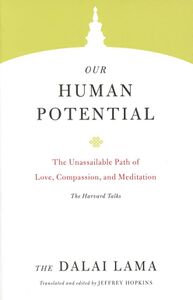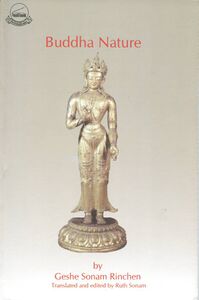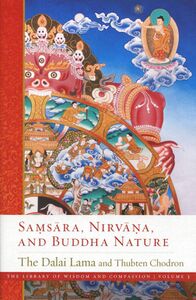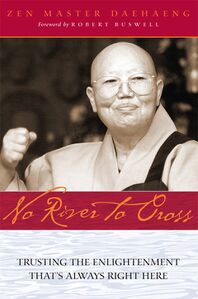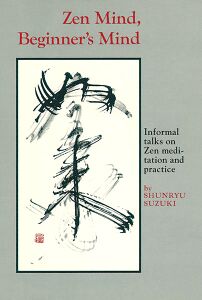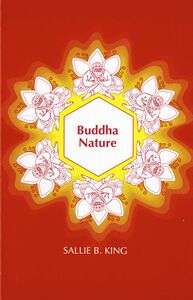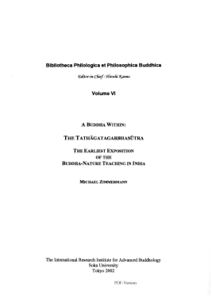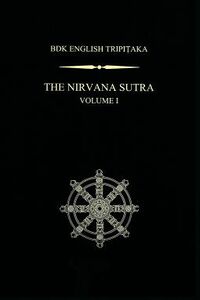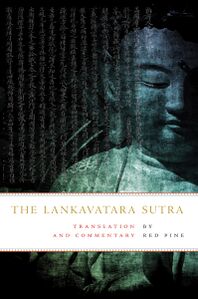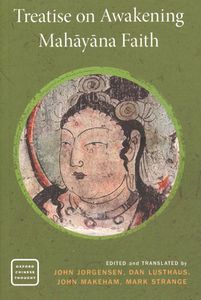Begin Discovering Your Buddha-Nature: Difference between revisions
From Buddha-Nature
No edit summary |
((by SublimeText.Mediawiker)) |
||
| (321 intermediate revisions by 3 users not shown) | |||
| Line 1: | Line 1: | ||
__NOTOC__{{HideFirstHeading}} | |||
<div class="text-article tsdwiki-depth-1 offwhite-bg mb-5"> | |||
<h1 class="text-center border-0 position-relative py-lg-5 mt-5 mb-0">{{#widget:DivWithBackImg | |||
|classes=w-100 h-100 position-absolute | |||
|src={{filepath:Amy-skyer-aqa6jL6N3Ww-unsplash.jpg|1200}} | |||
|imageposition=50% 50% | |||
|styles=top: 0px; | |||
|imageSource= | |||
}} | |||
<div class="w-100 h-100 position-absolute"></div> | |||
<div class="position-relative my-lg-5 font-italic">Begin Discovering Your Buddha-Nature</div> | |||
</h1> | |||
<div class="position-relative sun-1-bg"> | |||
<div class="position-absolute h-100 w-100 opac-50 offwhite-bg"></div> | |||
<div class="position-relative p-5 text-120">Discover how buddha-nature is articulated in various Buddhist traditions by exploring multimedia, articles, books, and translations of primary sources from leading Buddhist teachers and academics. This page brings together a collection of curated resources designed to make the concept of buddha-nature understandable and accessible to a general audience.</div> | |||
<div class="h2 position-relative pt-4 mb-4 pl-4 pb-2 border-bottom-rightfade">Buddha-Nature in Tibet | |||
<div class="text-60 text-muted position-absolute" style="bottom: 7px; right: 10px;">[[Site Guide|Complete Site Guide]]</div> | |||
</div> | </div> | ||
<div class="h4 position-relative pl-4">Multimedia</div> | |||
{{LocalTile | <div class="row m-0 px-lg-5 pt-4"> | ||
{{LocalTile | |||
|classes=col-sm-6 col-lg-6 | |||
|link=Media/We_Are_Enlightened_by_Nature | |||
|header=We Are Enlightened by Nature | |||
|image={{filepath:Dzigar_Kongtrul_Rinpoche_Mangala_Shri_Bhuti.jpg|500}} | |||
}} | |content=Dzigar Kongtrul Rinpoche provides encouragement that we are all enlightened by nature, and the path is a process of discovering that enlightened nature. | ||
|watermark=Video | |||
}} | |||
{{LocalTile | |||
|classes=col-sm-6 col-lg-6 | |||
|link=Media/Discovering_Buddha_Nature:_Talk_by_Yongey_Mingyur_Rinpoche | |||
|header=Discovering Buddha Nature: Talk by Yongey Mingyur Rinpoche | |||
}} | |image=https://commons.tsadra.org/images/b/bc/YMR_LamaYadi_LamaTrinley_KhenpoKunga_0534_FLT-1.jpg | ||
|content=Mingyur Rinpoche describes buddha-nature with the metaphor of a diamond covered in mud, explaining how the innate purity of awareness can be obscured, but never changed. | |||
|watermark=Video | |||
}} | |||
{{LocalTile | |||
|classes=col-sm-6 col-lg-6 | |||
|link=Media/Dealing_with_Depression:_Interview_with_Jetsunma_Tenzin_Palmo_on_Study_Buddhism | |||
|header=Dealing with Depression: Interview with Jetsunma Tenzin Palmo on Study Buddhism | |||
|image=https://commons.tsadra.org/images/8/82/Jetsunma_Tenzin_Palmo.jpg | |||
|content=Jetsunma Tenzin Palmo discusses buddha-nature beautifully for a general audience. | |||
|watermark=Video | |||
}} | |||
{{LocalTile | |||
|classes=col-sm-6 col-lg-6 | |||
|link=Media/What_Is_Buddha-Nature?_by_Wulstan_Fletcher | |||
|header=What Is Buddha-Nature? by Wulstan Fletcher | |||
|image=https://commons.tsadra.org/images/thumb/d/d1/Fletcher%2C_Wulstan-2014new.jpg/490px-Fletcher%2C_Wulstan-2014new.jpg | |||
|content=Wulstan Fletcher explains buddha-nature as the deepest aspect of oneself, a wellspring of goodness and wisdom that is always present. | |||
|watermark=Video | |||
}} | |||
{{LocalTile | |||
|classes=col-sm-6 col-lg-6 | |||
|link=Media/On_How_Beginning_Students_Might_Engage_with_Buddha-Nature_Teachings_by_Ringu_Tulku | |||
|header=On How Beginning Students Might Engage with Buddha-Nature Teachings by Ringu Tulku | |||
|image=https://commons.tsadra.org/images/c/cf/Ringu_Tulku-267x358.jpg | |||
|content=Ringu Tulku talks about how beginning students might start to orient themselves toward buddha-nature teachings in practice. He explains that it is important to recognize that everybody has the seed of wisdom and compassion within them. | |||
|watermark=Video | |||
}} | |||
{{LocalTile | |||
|classes=col-sm-6 col-lg-6 | |||
|link=Media/Buddha_Nature:_What_is_it?_How_is_it_different_from_soul?_A_Teaching_from_Zasep_Tulku | |||
|header=Buddha Nature: What Is It? How Is It Different from soul? A Teaching from Zasep Tulku | |||
|image=https://commons.tsadra.org/images/c/cd/Zasep_Tulku-Vimeo.jpg | |||
|content="Everyone has Buddha Nature," explains H.E. Zasep Tulku Rinpoche in a "learning from the Teachers" video on the topic from BuddhaWeekly. | |||
|watermark=Video | |||
}} | |||
{{LocalTile | |||
|classes=col-sm-6 col-lg-6 | |||
|link=Media/Dzongsar_Jamyang_Khyentse_Rinpoche_Talks_about_Buddha-Nature | |||
|header=Dzongsar Jamyang Khyentse Rinpoche Talks about Buddha-Nature | |||
|image=https://commons.tsadra.org/images/5/57/Khyentse_Dzongsar_Wikipedia.jpg | |||
|content=Dzongsar Jamyang Khyentse Rinpoche talks about buddha-nature and offers a brief guided meditation. | |||
|watermark=Video | |||
}} | |||
{{LocalTile | |||
|classes=col-sm-6 col-lg-6 | |||
|link=Media/Matthieu_Ricard:_Is_Buddha-Nature_a_Seed_to_Be_Cultivated_or_Something_that_Must_Be_Revealed? | |||
|header=Matthieu Ricard: Is Buddha-Nature a Seed to Be Cultivated or Something that Must Be Revealed? | |||
|image=https://commons.tsadra.org/images/c/cf/Ricard%2C_M..jpg | |||
|content=In an excerpt from "Conversations on Buddha-Nature" with Lopen Dr. Karma Phuntsho, Matthieu Ricard answers this common question. | |||
|watermark=Video | |||
}} | |||
{{LocalTile | |||
|classes=col-sm-6 col-lg-6 | |||
|link=Media/Karmapa_on_The_Nature_of_All_Beings | |||
|header=The 17th Karmapa on the Nature of All Beings | |||
|image=https://commons.tsadra.org/images/4/4c/Ogyen_Trinley_Dorje_Portrait-WikiCommons.jpg | |||
|content=H.H. the 17th Karmapa, Ogyen Trinley Dorje, comments on a quote of the 3rd Karmapa, Rangjung Dorje: "The nature of all beings is always Buddha" (འགྲོ་བའི་རང་བཞིན་རྟག་ཏུ་སངས་རྒྱས་). | |||
|watermark=Video | |||
}} | |||
{{LocalTile | |||
|classes=col-sm-6 col-lg-6 | |||
|link=Media/The_Fourteenth_Dalai_Lama_on_Buddha-Nature | |||
|header=The Fourteenth Dalai Lama on Buddha-Nature | |||
|image=https://commons.tsadra.org/images/6/6f/Dalai-lama-crop.jpg | |||
|content=The Dalai Lama delivers an address entitled "Buddha-Nature" to members of the Theosophical Society in America on July 21st, 1981. His comments on buddha-nature come after a series of preliminary remarks, at 14 min, 23 secs. | |||
|watermark=Video | |||
}} | |||
</div> | </div> | ||
</div> | |||
<div class="vienna-gradient pt-5 pb-4"> | |||
<div class=" | <div class="h4 position-relative pl-4">Articles</div> | ||
<div class="row m-0 px-lg-5 py-4"> | |||
{{LocalTile | |||
|classes=col-sm-6 col-lg-6 | |||
|link=Articles/On_Buddhanature—and_What_It_Is_Not | |||
|header=On Buddhanature—and What It Is Not, by Khandro Rinpoche | |||
|image=https://commons.tsadra.org/images/thumb/c/ce/Khandro_Rinpoche_RigpaWiki.jpg/433px-Khandro_Rinpoche_RigpaWiki.jpg | |||
|content="Buddhism must always be seen as a skillful means for realizing the most basic aspect of human life: one's inherent buddhanature." | |||
|watermark=Article | |||
}} | |||
{{LocalTile | |||
|classes=col-sm-6 col-lg-6 | |||
|link=Articles/Emptiness–Buddhanature | |||
|header=Emptiness–Buddhanature, by Traleg Kyabgon | |||
|image=https://commons.tsadra.org/images/c/c0/Traleg-Rinpoche_LionsRoar.jpg | |||
|content="Our true nature is buddhanature and that buddhanature is the nature of all sentient beings." | |||
|watermark=Article | |||
}} | |||
{{LocalTile | |||
|classes=col-sm-6 col-lg-6 | |||
|link=Articles/Lasting_Happiness | |||
|header=Lasting Happiness, by Yongey Mingyur Rinpoche | |||
|image=https://commons.tsadra.org/images/b/bc/YMR_LamaYadi_LamaTrinley_KhenpoKunga_0534_FLT-1.jpg | |||
|content="... We don’t have to look outside the present moment to experience wisdom, compassion, and the boundless purity of our true nature." | |||
|watermark=Article | |||
}} | |||
{{LocalTile | |||
|classes=col-sm-6 col-lg-6 | |||
|link=Articles/This_Is_My_Mind,_Luminous_and_Empty | |||
|header=This Is My Mind, Luminous and Empty, by Tsoknyi Rinpoche | |||
|image=https://commons.tsadra.org/images/2/28/Tsoknyi_TsoknyiRinpocheWebsite.jpg | |||
|content="That something, when I was old enough to fit words to it, is a kind of spark that lights the lives of all living beings.... In many Buddhist teachings, it’s known as buddhanature." | |||
|watermark=Article | |||
}} | |||
{{LocalTile | |||
|classes=col-sm-6 col-lg-6 | |||
|link=Articles/Spotless_from_the_Start | |||
|header=Spotless from the Start | |||
|image=https://commons.tsadra.org/images/5/57/Khyentse_Dzongsar_Wikipedia.jpg | |||
|content="In order to overcome the five main obstacles facing a bodhisattva," says Dzongsar Khyentse Rinpoche, "we must realize that all beings are primordially pure." | |||
|watermark=Article | |||
}} | |||
{{LocalTile | |||
|classes=col-sm-6 col-lg-6 | |||
|link=Articles/The_Sky_Dragon's_Profound_Roar | |||
|header=The Sky Dragon's Profound Roar, by Khenpo Tsultrim Gyamtso | |||
|image=https://commons.tsadra.org/images/a/a8/Khen_Tsultrim.jpg | |||
|content="We practice the genuine dharma because it is a method for clearing away the temporary stains that obscure our vision of the true nature of mind." | |||
|watermark=Article | |||
}} | |||
</div> | </div> | ||
<div class="h4 position-relative pl-4">Books</div> | |||
<div class="d-flex justify-content-center flex-wrap py-4"> | |||
{{ExploreBook | |||
|page=Books/Our_Human_Potential | |||
}} | |image=File:Our Human Potential-front.jpeg | ||
|authorimage=People/Dalai_Lama,_14th | |||
|name=[[People/Dalai_Lama,_14th|14th Dalai Lama]] & [[People/Hopkins,_J.|Jeffrey Hopkins]] | |||
|title=Our Human Potential | |||
|classes=px-4 | |||
}} | |||
{{ExploreBook | |||
|page=Books/Buddha_Nature_(Geshe_Sonam_Rinchen) | |||
|image=File:Buddha Nature (Geshe Sonam Rinchen)-front.jpg | |||
|authorimage=People/Rinchen,_Sonam | |||
|name=[[People/Rinchen,_Sonam.|Geshe Sonam Rinchen]] | |||
|title=Buddha Nature | |||
|classes=px-4 | |||
}} | |||
{{ExploreBook | |||
|page=Books/Carefree_Dignity | |||
|image=File:Carefree Dignity-front.jpg | |||
|authorimage=People/Tsoknyi_Rinpoche | |||
|name=[[People/Tsoknyi_Rinpoche|Tsoknyi Rinpoche]] | |||
|title=Carefree Dignity | |||
|classes=px-4 | |||
}} | |||
{{ExploreBook | |||
|page=Books/Saṃsāra,_Nirvāṇa,_and_Buddha_Nature | |||
|image=File:Samsāra, Nirvāna, and Buddha Nature-front.jpg | |||
|authorimage=People/Dalai_Lama,_14th | |||
|name=[[People/Dalai_Lama,_14th|14th Dalai Lama]] & [[People/Chodron,_T.|Thubten Chodron]] | |||
|title=Saṃsāra, Nirvāṇa, and Buddha Nature | |||
|classes=px-4 | |||
}} | |||
{{ExploreBook | |||
|page=Books/Progressive_Stages_of_Meditation_on_Emptiness_(2016) | |||
|image=File:Progressive_Stages_of_Meditation_on_Emptiness_(2016)-front.jpg | |||
|authorimage=People/Gyamtso,_Khenpo_Tsultrim | |||
|name=[[People/Gyamtso,_Khenpo_Tsultrim|Khenpo Tsultrim Gyamtso]] | |||
|title=Progressive Stages of Meditation on Emptiness | |||
|classes=px-4 | |||
}} | |||
{{ExploreBook | |||
|page=Books/Fundamental_Potential_for_Enlightenment_in_Tibetan_Buddhism | |||
|image=File:The Fundamental Potential for Enlightenment-front.jpg | |||
|authorimage=People/Loden,_Thubten | |||
|name=[[People/Loden,_Thubten|Thubten Loden]] | |||
|title=The Fundamental Potential for Enlightenment | |||
|classes=px-4 | |||
}} | |||
</div> | </div> | ||
</div> | |||
<div class="position-relative bg-sky-clouds"> | |||
<div class="h2 position-relative pt-4 mb-4 pl-4 pb-2 border-bottom-rightfade">Buddha-Nature in East Asia</div> | |||
<div class="h4 position-relative pl-4">Multimedia</div> | |||
<div> | <div class="row m-0 px-lg-5 py-4"> | ||
{{ | {{LocalTile | ||
| | |classes=col-sm-6 col-lg-6 | ||
| | |link=Media/Buddha-Nature_—_Episode_22_of_True_Words:_A_Shingon_Buddhist_Podcast | ||
| | |header=Buddha-Nature by Rev. George Kosho Finch | ||
| | |image=https://commons.tsadra.org/images/8/84/Finch_Rev._George_Kosho_patheos.jpg | ||
| | |content=This week's topic is Buddha Nature, in Sanskrit: ''tathāgatagarbha'' (如来藏). All sentient beings are considered to be in possession of the Buddha Nature, the potential to attain enlightenment. | ||
|watermark=Audio | |||
}} | |||
{{LocalTile | |||
|classes=col-sm-6 col-lg-6 | |||
|link=Media/It_Is_Your_Buddha_Nature_That_Sees,_Hears_and_Speaks!―Dharma_Talk_by_Daehaeng_Kun_Sunim | |||
|header=It Is Your Buddha-Nature That Sees, Hears, and Speaks! | |||
|image=https://commons.tsadra.org/images/3/37/Daehaeng_Wikipedia.jpg | |||
|content=Daehaeng Kun Sunim, a Seon (Zen) master and Buddhist nun from Korea, responds to questions about the concept of ''Juingong'' (the underlying mind) from an audience member. | |||
|watermark=Video | |||
}} | |||
{{LocalTile | |||
|classes=col-sm-6 col-lg-6 | |||
|link=Media/Trusting_in_Our_Own_Buddha_Nature | |||
|header=Trusting in Our Own Buddha-Nature | |||
|image=https://commons.tsadra.org/images/6/68/Sattizahn_Ed_SFZC.jpg | |||
|content=Rinso Ed Sattizahn gives a dharma talk at San Francisco Zen Center's City Center on the topic of buddha-nature. He touches on selections from Dōgen's ''Genjōkōan'' to illustrate this Buddhist teaching. | |||
|watermark=Audio | |||
}} | |||
{{LocalTile | |||
|classes=col-sm-6 col-lg-6 | |||
|link=Media/One's_True_Mind_and_Inherent_Nature_by_Sheng_Yen | |||
|header=One's True Mind and Inherent Nature by Sheng Yen | |||
|image=https://commons.tsadra.org/images/c/c9/ShengYen_Tricycle.jpeg | |||
|content=Our true mind is the pure mind of wisdom free of defilements. Our inherent nature refers to the nature of our being something common, which is also called the buddha-nature. | |||
|watermark=Video | |||
}} | |||
{{LocalTile | |||
|classes=col-sm-6 col-lg-6 | |||
|link=Articles/Kokyo_Henkel_on_Buddha-Nature | |||
|header=The Cloudless Sky of Buddha-Nature | |||
|image=https://commons.tsadra.org/images/5/56/Henkel_Kokyo_personal_website.jpg | |||
|content=Rev. Kokyo Henkel teaches on "The Cloudless Sky of Buddha Nature" at the San Francisco Zen Center on September 6, 2011. | |||
|watermark=Audio | |||
}} | }} | ||
</div> | </div> | ||
</div> | |||
<div class="vienna-gradient pt-5 pb-4"> | |||
<div class=" | <div class="h4 position-relative pl-4">Articles</div> | ||
<div class="row | |||
<div class="row m-0 px-lg-5 py-4"> | |||
{{LocalTile | |||
|classes=col-sm-6 col-lg-6 | |||
|link=Articles/Mind_Is_Buddha | |||
|header=Mind Is Buddha | |||
|image=https://commons.tsadra.org/images/9/99/Arnold_Geoffrey_Shugen_Wikipedia.jpg | |||
|content=Geoffery Shugen Arnold, Sensei, on Case 30 of the Gateless Gate, “Mazu’s ‘Mind is buddha.'” | |||
|watermark=Article | |||
}} | |||
{{LocalTile | |||
|classes=col-sm-6 col-lg-6 | |||
|link=Articles/Everything_Is_Buddhanature | |||
|header=Everything Is Buddhanature | |||
|image=https://commons.tsadra.org/images/3/35/Blacker_Melissa_Personal_Website.jpg | |||
|content=Original sin vs. original goodness: Mahayana Buddhism offers a more hopeful view of human nature. | |||
|watermark=Article | |||
}} | |||
{{LocalTile | |||
|classes=col-sm-6 col-lg-6 | |||
|link=Articles/Trust_Practice,_Practice_Trust | |||
|header=Trust Practice, Practice Trust | |||
|image=https://commons.tsadra.org/images/6/64/Chayat_Sherry_zen_studies_society.jpg | |||
|content=When we truly give ourselves over to practice, explains Roko Sherry Chayat, we let go of our dependence on outcomes and begin to trust just being what we are, buddhanature, revealed right here, right now, in this very body and place. | |||
|watermark=Article | |||
}} | |||
{{LocalTile | |||
|classes=col-sm-6 col-lg-6 | |||
|link=Articles/Impermanence_is_Buddha_Nature | |||
|header=Impermanence Is Buddha Nature | |||
|image=https://commons.tsadra.org/images/8/88/Fischer_norman.jpg | |||
|content=Change isn’t just a fact of life we have to accept and work with, says Norman Fischer. Practitioners have always understood impermanence as the cornerstone of Buddhist teachings and practice. | |||
|watermark=Article | |||
}} | |||
{{LocalTile | |||
|classes=col-sm-6 col-lg-6 | |||
|link=Articles/On_the_Awakening_of_Faith_in_the_Mahāyāna | |||
|header=On the ''Awakening of Faith in the Mahāyāna'' | |||
|image=https://commons.tsadra.org/images/5/50/Alexander_Gardner.jpg | |||
|content=An introduction to the ''Awakening of Faith'', an immensely important treatise popular in all traditions of Buddhism in East Asia. | |||
|watermark=Article | |||
}} | |||
{{LocalTile | |||
|classes=col-sm-6 col-lg-6 | |||
|link=Articles/The_Path_of_Gratitude | |||
|header=The Path of Gratitude | |||
|image=https://commons.tsadra.org/images/f/fb/Jeff_wilson_dailybuddhism.jpg | |||
|content=In Shin Buddhism, we don’t practice to achieve anything—not enlightenment, good karma, a favorable rebirth, or material rewards. We practice simply to give thanks for what we have received. | |||
|watermark=Article | |||
}} | |||
| | |||
}} | }} | ||
</div> | </div> | ||
<div class=" | |||
<div class="d-flex justify-content- | <div class="h4 position-relative pl-4">Books</div> | ||
<div class="d-flex justify-content-center flex-wrap py-4"> | |||
{{ExploreBook | {{ExploreBook | ||
|page=Books/ | |page=Books/No_River_to_Cross | ||
|image=File: | |image=File:No River to Cross-front.jpg | ||
|authorimage=People/ | |authorimage=People/Daehaeng | ||
|name=[[People/ | |name=[[People/Daehaeng|Daehaeng]] | ||
|title= | |title=No River to Cross | ||
|classes=px-4 | |||
}} | }} | ||
{{ExploreBook | {{ExploreBook | ||
|page=Books/ | |page=Books/Zen_Mind,_Beginner's_Mind | ||
|authorimage=People/ | |authorimage=People/Suzuki,_S. | ||
|name=[[People/ | |name=[[People/Suzuki,_S.|Suzuki]] | ||
| | |title=Zen Mind, Beginner's Mind | ||
|classes=px-4 | |||
}} | }} | ||
{{ExploreBook | {{ExploreBook | ||
|page=Books/Treatise_on_Awakening_Mahāyāna_Faith | |page=Books/Buddha_Nature_(Sallie_King) | ||
|authorimage=People/King,_S. | |||
|name=[[People/King,_S.|King]] | |||
|title=Buddha Nature | |||
|classes=px-4 | |||
}} | |||
</div> | |||
</div> | |||
{{FeaturedItem | |||
|page=Primary_Sources | |||
|description=<div class="h2 mt-2 mb-4 pl-4 border-bottom-rightfade">Study the Sources</div> | |||
<div class="pr-lg-5 pl-4">The seeds of buddha-nature teachings are sprinkled throughout the sutras and tantras of the Buddhist canon. A core group of scripture that initially taught buddha-nature known as the tathāgatagarbha sūtras date between the second and fourth centuries. These include the ''Tathāgatagarbhasūtra'', the ''Mahāparinirvāṇasūtra'', the ''Śrīmālādevīsūtra'' and several others. The famous ''Laṅkāvatārasūtra'' was also important for buddha-nature theory. In Tibetan Buddhism the late-Indian treatise ''Ratnagotravibhāga Mahāyānottaratantraśāstra'', or ''Gyü Lama'' as it is known in the Tibetan, serves as a major source for buddha-nature. In East Asia the ''Awakening of Faith in the Mahāyāna'' (大乗起信論) and the ''Vajrasamādhisūtra'' were the most influential treatises in spreading buddha-nature theory. And in Japan, the Zen master Dōgen (1200–1253), whose instructional lectures were collected in his ''Shōbōgenzo'', also wrote extensively on the topic of buddha-nature. All of these important buddha-nature texts have been translated into English by leading scholars and translators. Below is a selection of these works:</div> | |||
|image=https://commons.tsadra.org/images/thumb/c/c7/Maitreya_statue.jpg/431px-Maitreya_statue.jpg | |||
|textclasses=maitreya-gradient pt-2 pb-3 | |||
|imageposition=right | |||
|imageclasses=flip-h | |||
|additionalcontent=<div class="border-top-redfade py-3 d-flex justify-content-center flex-wrap"></div> | |||
}} | |||
<div class="h2 position-relative pt-4 mb-4 pl-4 pb-2 border-bottom-rightfade">Buddha-Nature in Translation</div> | |||
<div class="d-flex justify-content-center flex-wrap py-4"> | |||
{{ExploreBook | |||
|page=Books/A_Buddha_Within:_The_Tathāgatagarbhasūtra | |||
|authorimage=People/Zimmermann, M. | |||
|name=[[People/Zimmermann, M.|Zimmermann]] | |||
|title=A Buddha Within: The Tathāgatagarbhasūtra | |||
|classes=px-4 | |||
}} | |||
{{ExploreBook | |||
|page=Books/The_Nirvana_Sutra_Volume_I | |||
|authorimage=People/Blum,_M. | |||
|name=[[People/Blum,_M.|Blum]] | |||
|title=The Nirvana Sutra, Vol. 1 | |||
|classes=px-4 | |||
}} | |||
{{ExploreBook | |||
|page=Books/The_Lion's_Roar_of_Queen_Śrīmālā | |||
|authorimage=People/Wayman,_A. | |||
|name=[[People/Wayman,_A.|Alex Wayman]] & [[People/Wayman,_H.|Hideko Wayman]] | |||
|title=The Lion's Roar of Queen Śrīmālā | |||
|classes=px-4 | |||
}} | |||
{{ExploreBook | |||
|page=Books/The_Lankavatara_Sutra:_A_Zen_Text | |||
|image=File:Lankavatara Sutra Translation Commentary-front.jpg | |||
|authorimage=People/Red_Pine | |||
|name=[[People/Red_Pine|Red Pine]] | |||
|title=The Lankavatara Sutra: A Zen Text | |||
|classes=px-4 | |||
}} | |||
{{ExploreBook | |||
|page=Books/Buddha_Nature:_The_Mahayana_Uttaratantra_Shastra | |||
|image=File:Buddha Nature The Mahayana Uttaratantra Shastra-front.jpg | |||
|authorimage=People/Fuchs,_R. | |||
|name=[[People/Fuchs,_R.|Fuchs]] | |||
|title=Buddha Nature: The Mahayana Uttaratantra Shastra | |||
|classes=px-4 | |||
}} | |||
{{ExploreBook | |||
|page=Books/Treatise_on_Awakening_Mahāyāna_Faith | |||
|authorimage=People/Lusthaus, D. | |||
|name=[[People/Jorgensen, J.|Jorgensen]] & [[People/Lusthaus, D.|Lusthaus]] | |||
|title=Treatise on Awakening Mahāyāna Faith | |||
|classes=px-4 | |||
}} | |||
{{ExploreBook | |||
|page=Books/The_Formation_of_Ch'an_Ideology_in_China_and_Korea | |||
|image=File:The Formation of Ch'an Ideology in China and Korea-front.jpg | |||
|authorimage=People/Buswell,_R. | |||
|name=[[People/Buswell,_R.|Buswell]] | |||
|title=The Formation of Ch'an Ideology in China and Korea (The ''Vajrasamādhi Sūtra'') | |||
|classes=px-4 | |||
}} | |||
{{ExploreBook | |||
|page=Books/The_Heart_of_Dōgen's_Shōbōgenzō | |||
|image=File:The Heart of Dōgen's Shōbōgenzō-front.jpg | |||
|authorimage=People/Waddell,_N. | |||
|name=[[People/Waddell,_N.|Waddell]] & [[People/Abe, M.|Abe]] | |||
|title=The Heart of Dōgen's Shōbōgenzō | |||
|classes=px-4 | |||
}} | |||
</div> | |||
<div class="h2 position-relative pt-4 mb-4 pl-4 pb-2 border-bottom-rightfade">More Scholarship on Buddha-Nature</div> | |||
{{FeaturedItem | |||
|page=Articles/Karl_Brunnhölzl_Interview_on_Buddha-Nature | |||
|title=Karl Brunnhölzl's Buddha-Nature Interview | |||
|description=In an interview with the Tsadra Foundation, Karl Brunnhölzl discusses why one might study buddha-nature, the purpose of the buddha-nature teachings, and the concept of the innate luminosity of mind. | |||
|image=https://commons.tsadra.org/images/e/e1/Brunnholzl_Karl_Mitra-Karl.jpg | |||
|textclasses=karl-gradient pl-1 pt-2 pb-3 | |||
|additionalcontent=<div class="py-3 mb-3 d-flex justify-content-center flex-wrap row"> | |||
{{CustomSmallSessionTile | |||
|classes=col-md-4 text-70 | |||
|title=Why Study Buddha-Nature? | |||
|bottomLeftLabel=Interview Clip | |||
|minutes=2:07 | |||
|link=Media/Why_Study_Buddha-Nature?_by_Karl_Brunnhölzl | |||
}} | |||
{{CustomSmallSessionTile | |||
|classes=col-md-4 text-70 | |||
|title=The Purpose of Buddha-Nature Teachings | |||
|bottomLeftLabel=Interview Clip | |||
|minutes=3:38 | |||
|link=Media/What_Is_the_Purpose_of_Buddha-Nature_Teachings?_by_Karl_Brunnhölzl | |||
}} | |||
{{CustomSmallSessionTile | |||
|classes=col-md-4 text-70 | |||
|title=What Is Luminosity? | |||
|bottomLeftLabel=Interview Clip | |||
|minutes=4:21 | |||
|link=Media/What_Is_Luminosity?_by_Karl_Brunnhölzl | |||
}} | |||
</div> | |||
<div class="sub-section-header mt-4 mt-lg-2 mb-2">[[Karl Brunnhölzl]]'s Seminal Work on Buddha-Nature</div> | |||
<div class="row d-flex justify-content-center"> | |||
{{PageTileQuery | |||
|query=[[Books/When_the_Clouds_Part]] | |||
|classes=mt-2 mb-4 col-lg-6 | |||
}} | |||
</div> | |||
}} | |||
{{FeaturedItem | |||
|page=People/Gardner,_A. | |||
|title=First Writer-In-Digital-Residence: Alex Gardner | |||
|description=Alex Gardner served as the writer-in-residence for Tsadra Foundation's Buddha-Nature Project from 2017-2019. Read his introductory articles on the ''Ratnagotravibhāga'' and the history of buddha-nature theory. | |||
<div class="d-flex justify-content-center flex-wrap"> | |||
{{RelatedButton | |||
|link=/index.php/Articles/On_the_Ratnagotravibhāga | |||
|image=https://commons.tsadra.org/images/5/50/Alexander_Gardner.jpg | |||
|text=On the Ratnagotravibhāga | |||
|label-right=Article | |||
|target=_blank | |||
|wrapperclasses=my-3 depth-0 | |||
|textclasses=text-90 | |||
}} | |||
{{RelatedButton | |||
|link=/index.php/Articles/A_History_of_Buddha-Nature_Theory:_The_Literature_and_Traditions | |||
|image=https://commons.tsadra.org/images/5/50/Alexander_Gardner.jpg | |||
|text=A History of Buddha-Nature Theory: The Literature and Traditions | |||
|label-right=Article | |||
|target=_blank | |||
|wrapperclasses=my-3 depth-0 | |||
}} | |||
</div> | |||
|image=https://commons.tsadra.org/images/8/81/Gardner_Alex_Kitchen.jpg | |||
|imageposition=right | |||
|textclasses=alex-gradient pt-3 pb-2 | |||
}} | |||
{{FeaturedItem | |||
|page=People/Phuntsho,_Karma | |||
|title=Current Writer-In-Digital-Residence: Karma Phuntsho | |||
|description=Lopen (Dr) Karma Phuntsho is one of Bhutan’s leading intellectuals. He has finished monastic training in Bhutan and India before he pursued a M.St in Classical Indian Religions, and D.Phil in Oriental Studies at Balliol College, Oxford. Read his weekly blog on topics related to Buddhism and buddha-nature, visit his "Ask the Writer-in-Residence" page to get answers to your questions, or watch the ongoing video series "Conversations on Buddha-Nature." | |||
<div class="d-flex justify-content-center flex-wrap"> | |||
{{RelatedButton | |||
|link=https://buddhanature.tsadra.org/index.php/Topic_of_the_week | |||
|image=https://commons.tsadra.org/images/b/bb/Phuntsho%2C_Karma-OFFICIAL.jpg | |||
|text=Topic of the Week | |||
|label-right=Blog | |||
|target=_blank | |||
|wrapperclasses=my-3 depth-0 | |||
|textclasses=text-90 | |||
}} | |||
{{RelatedButton | |||
|link=https://buddhanature.tsadra.org/index.php/Ask_the_writer-in-residence | |||
|image=https://commons.tsadra.org/images/b/bb/Phuntsho%2C_Karma-OFFICIAL.jpg | |||
|text=Ask the Writer-in-Residence | |||
|label-right=Q & A | |||
|target=_blank | |||
|wrapperclasses=my-3 depth-0 | |||
}} | |||
{{RelatedButton | |||
|link=https://buddhanature.tsadra.org/index.php/Conversations_on_Buddha-Nature | |||
|image=https://commons.tsadra.org/images/b/bb/Phuntsho%2C_Karma-OFFICIAL.jpg | |||
|text=Conversations on Buddha-Nature | |||
|label-right=Video Series | |||
|target=_blank | |||
|wrapperclasses=my-3 depth-0 | |||
}} | |||
</div> | |||
|image=https://commons.tsadra.org/images/thumb/1/14/Tricycle_Bhutan-Karma-Phuntsho.jpg/800px-Tricycle_Bhutan-Karma-Phuntsho.jpg | |||
|imageposition=left | |||
|imagelink=https://tricycle.org/magazine/bhutan-on-the-brink/ | |||
|textclasses=alex-gradient pt-3 pb-2 | |||
}} | |||
<div class="position-relative bg-sky-clouds"> | |||
<div class="position-absolute h-100 w-100 opac-50 bg-light"></div> | |||
<div class="h2 position-relative pt-5 mb-4 pl-4 pb-2 border-bottom-rightfade">Discover More Resources</div> | |||
<div class="row m-0 px-lg-5 pt-0 pb-5"> | |||
{{LocalTile | |||
|classes= mw-customtoggle-literaturetile col-sm-6 col-lg-4 offset-lg-2 | |||
|header=The Literature | |||
|image=https://commons.tsadra.org/images/d/d0/Sutra.jpg | |||
|content=Texts and multilingual resources | |||
|left-bottom-label=expand | |||
|extracontent= | |||
<div class="row mw-collapsible mw-collapsed pb-4" id="mw-customcollapsible-literaturetile"> | |||
{{MiniTileCustom | |||
|image=https://commons.tsadra.org/images/thumb/7/7f/Articles.jpeg/320px-Articles.jpeg | |||
|link=Secondary_Sources | |||
|text=The Bibliography | |||
}} | |||
{{MiniTileCustom | |||
|image=https://commons.tsadra.org/images/4/48/Buddha.jpg | |||
|link=Primary_Sources | |||
|text=The Source Texts | |||
}} | |||
{{MiniTileCustom | |||
|image=https://commons.tsadra.org/images/thumb/3/3a/Screen_Shot_2018-06-20_at_3.54.38_PM.png/200px-Screen_Shot_2018-06-20_at_3.54.38_PM.png | |||
|link=Texts/Ratnagotravibhāga_Mahāyānottaratantraśāstra | |||
|text=The Ratnagotravibhāga | |||
}} | |||
{{MiniTileCustom | |||
|image=https://commons.tsadra.org/images/d/d8/Sutra_alt.jpeg | |||
|link=Texts/Ratnagotravibhāga_Mahāyānottaratantraśāstra/Root_Verses | |||
|text=The Multilingual Root Verses | |||
}} | |||
</div> | |||
}} | }} | ||
{{ | {{LocalTile | ||
| | |classes= mw-customtoggle-librarytile col-sm-6 col-lg-4 | ||
|header=The Library | |||
|image=https://commons.tsadra.org/images/thumb/7/79/Library-unsplash.jpg/320px-Library-unsplash.jpg | |||
|content=A curated space for publications on buddha-nature | |||
|left-bottom-label=expand | |||
|extracontent= | |||
<div class="row mw-collapsible mw-collapsed pb-4" id="mw-customcollapsible-librarytile"> | |||
{{MiniTileCustom | |||
|link=Library | |||
|image=https://commons.tsadra.org/images/thumb/7/79/Library-unsplash.jpg/320px-Library-unsplash.jpg | |||
|text=The Complete Library | |||
}} | |||
{{MiniTileCustom | |||
|link=Library/Books | |||
|image=https://commons.tsadra.org/images/thumb/d/db/Books.jpg/320px-Books.jpg | |||
|text=Books | |||
|wrapperclasses=col-6 pr-1 | |||
}} | |||
{{MiniTileCustom | |||
|link=Library/Dissertations | |||
|image=https://commons.tsadra.org/images/thumb/1/16/Dissertations.jpeg/320px-Dissertations.jpeg | |||
|text=Dissertations | |||
|wrapperclasses=col-6 pl-1 | |||
}} | |||
{{MiniTileCustom | |||
|link=Library/Articles | |||
|image=https://commons.tsadra.org/images/thumb/7/7f/Articles.jpeg/320px-Articles.jpeg | |||
|text=Articles | |||
|wrapperclasses=col-6 pr-1 | |||
}} | |||
{{MiniTileCustom | |||
|link=Library/Interviews | |||
|image=https://commons.tsadra.org/images/thumb/1/15/Mic.jpg/320px-Mic.jpg | |||
|text=Interviews | |||
|wrapperclasses=col-6 pl-1 | |||
}} | |||
{{MiniTileCustom | |||
|link=Library/Sutras | |||
|image=https://commons.tsadra.org/images/d/d8/Sutra_alt.jpeg | |||
|text=Sutras | |||
|wrapperclasses=col-6 pr-1 | |||
}} | |||
{{MiniTileCustom | |||
|link=Library/Commentaries | |||
|image=https://commons.tsadra.org/images/thumb/2/22/Pecha1.jpg/320px-Pecha1.jpg | |||
|text=Commentaries | |||
|wrapperclasses=col-6 pl-1 | |||
}} | |||
{{MiniTileCustom | |||
|link=Library/People | |||
|image=https://commons.tsadra.org/images/thumb/a/a3/Asanga_and_Maitreya.jpg/168px-Asanga_and_Maitreya.jpg | |||
|text=People | |||
|wrapperclasses=col-6 pr-1 | |||
}} | |||
{{MiniTileCustom | |||
|link=Library/Multimedia | |||
|image=https://commons.tsadra.org/images/thumb/b/b9/Media.jpeg/320px-Media.jpeg | |||
|text=Multimedia | |||
|wrapperclasses=col-6 pl-1 | |||
}} | |||
{{MiniTileCustom | |||
|link=Glossary | |||
|image=https://commons.tsadra.org/images/thumb/7/72/Search-reduced.jpg/320px-Search-reduced.jpg | |||
|text=Terms Glossary | |||
}} | |||
{{MiniTileCustom | |||
|link=Secondary_Sources | |||
|image=https://commons.tsadra.org/images/thumb/7/7f/Articles.jpeg/320px-Articles.jpeg | |||
|text=The Bibliography | |||
}} | |||
</div> | |||
}} | }} | ||
</div> | </div> | ||
</div> | |||
<div class="h2 pt-5 mb-4 pl-4 pb-2 border-bottom-rightfade">More on Buddha-Nature</div> | |||
<div class="row mx-3 pb-4"> | |||
<div class="col-lg-6 pr-0"> | |||
<div class="tsdwiki-home-tile link-no-border tsdwiki-pop-off rounded over-hidden m-0"> | |||
<div class="row m-0" style="height: 100%;"> | |||
<div class="col-4 p-0 pecha-back-reduced-color"></div> | |||
<div class="col-8 px-4 pt-2" style="padding-bottom: 4rem;"> | |||
<div class="tsdwiki-home-tile-heading border-0">Explore</div> | |||
<div class="home-tile-text">Read and watch academic presentations, interviews, books, and articles.</div> | |||
<div class="bottom-label" style="right: 1.5rem; bottom: 1rem;">Go deeper</div> | |||
</div> | |||
</div>{{#widget:OverlayLink | |||
|link=/index.php/Explore | |||
|target=_self | |||
|classes=none | |||
|title=Explore | |||
|link= | |||
| | |||
| | |||
| | |||
}} | }} | ||
</div> | </div> | ||
</div> | </div> | ||
<div class=" | <div class="col-lg-6 p-0 pt-3 pt-lg-0 d-flex justify-content-center flex-wrap"> | ||
{{RelatedButton | |||
{{ | |link=/index.php/Ask_the_writer-in-residence | ||
| | |image=https://commons.tsadra.org/images/thumb/7/79/Library-unsplash.jpg/320px-Library-unsplash.jpg | ||
| | |text=Ask the writer-in-residence | ||
| | |label=Questions Answered | ||
| | |label-right=<i class="ml-1 fad fa-arrow-up rotate45"></i> | ||
| | |wrapperclasses=m-2 | ||
| | }} | ||
| | {{RelatedButton | ||
| | |link=/index.php/Texts/Ratnagotravibhāga_Mahāyānottaratantraśāstra | ||
| | |image=https://commons.tsadra.org/images/thumb/3/3a/Screen_Shot_2018-06-20_at_3.54.38_PM.png/200px-Screen_Shot_2018-06-20_at_3.54.38_PM.png | ||
| | |text=The Ratnagotravibhāga | ||
| | |textclasses=text-90 | ||
| | |label=Study | ||
| | |label-right=<i class="ml-1 fad fa-arrow-up rotate45"></i> | ||
|wrapperclasses=m-2 | |||
}} | |||
{{RelatedButton | |||
|link=/index.php/Events | |||
|image=https://commons.tsadra.org/images/thumb/b/be/Vienna-Symposium-Banner-for-Workshops-Meetings-Tsadra-website.jpg/320px-Vienna-Symposium-Banner-for-Workshops-Meetings-Tsadra-website.jpg | |||
|text=Events | |||
|label=Watch & Listen | |||
|label-right=<i class="ml-1 fad fa-arrow-up rotate45"></i> | |||
|wrapperclasses=m-2 | |||
}} | |||
{{RelatedButton | |||
|link=/index.php/Topic_of_the_week | |||
|image=https://commons.tsadra.org/images/thumb/1/15/Mic.jpg/320px-Mic.jpg | |||
|text=Topic of the week | |||
|label=Read, Watch & Listen | |||
|label-right=<i class="ml-1 fad fa-arrow-up rotate45"></i> | |||
|wrapperclasses=m-2 | |||
}} | }} | ||
</div> | </div> | ||
</div> | </div> | ||
</div> | </div> | ||
Latest revision as of 21:43, 12 December 2024
Begin Discovering Your Buddha-Nature
Discover how buddha-nature is articulated in various Buddhist traditions by exploring multimedia, articles, books, and translations of primary sources from leading Buddhist teachers and academics. This page brings together a collection of curated resources designed to make the concept of buddha-nature understandable and accessible to a general audience.
Buddha-Nature in Tibet
Multimedia
On How Beginning Students Might Engage with Buddha-Nature Teachings by Ringu Tulku
Ringu Tulku talks about how beginning students might start to orient themselves toward buddha-nature teachings in practice. He explains that it is important to recognize that everybody has the seed of wisdom and compassion within them.
Articles
Books
Buddha-Nature in East Asia
Multimedia
Articles
Books
Study the Sources
The seeds of buddha-nature teachings are sprinkled throughout the sutras and tantras of the Buddhist canon. A core group of scripture that initially taught buddha-nature known as the tathāgatagarbha sūtras date between the second and fourth centuries. These include the Tathāgatagarbhasūtra, the Mahāparinirvāṇasūtra, the Śrīmālādevīsūtra and several others. The famous Laṅkāvatārasūtra was also important for buddha-nature theory. In Tibetan Buddhism the late-Indian treatise Ratnagotravibhāga Mahāyānottaratantraśāstra, or Gyü Lama as it is known in the Tibetan, serves as a major source for buddha-nature. In East Asia the Awakening of Faith in the Mahāyāna (大乗起信論) and the Vajrasamādhisūtra were the most influential treatises in spreading buddha-nature theory. And in Japan, the Zen master Dōgen (1200–1253), whose instructional lectures were collected in his Shōbōgenzo, also wrote extensively on the topic of buddha-nature. All of these important buddha-nature texts have been translated into English by leading scholars and translators. Below is a selection of these works:
Buddha-Nature in Translation
More Scholarship on Buddha-Nature
In an interview with the Tsadra Foundation, Karl Brunnhölzl discusses why one might study buddha-nature, the purpose of the buddha-nature teachings, and the concept of the innate luminosity of mind.
Karl Brunnhölzl's Seminal Work on Buddha-Nature
When the Clouds Part
"Buddha nature" (tathāgatagarbha) is the innate potential in all living beings to become a fully awakened buddha. This book discusses a wide range of topics connected with the notion of buddha nature as presented in Indo-Tibetan Buddhism and includes an overview of the sūtra sources of the tathāgatagarbha teachings and the different ways of explaining the meaning of this term. It includes new translations of the Maitreya treatise Mahāyānottaratantra (Ratnagotravibhāga), the primary Indian text on the subject, its Indian commentaries, and two (hitherto untranslated) commentaries from the Tibetan Kagyü tradition. Most important, the translator’s introduction investigates in detail the meditative tradition of using the Mahāyānottaratantra as a basis for Mahāmudrā instructions and the Shentong approach. This is supplemented by translations of a number of short Tibetan meditation manuals from the Kadampa, Kagyü, and Jonang schools that use the Mahāyānottaratantra as a work to contemplate and realize one’s own buddha nature. (Source: Shambhala Publications)
Brunnhölzl, Karl. When the Clouds Part: The Uttaratantra and Its Meditative Tradition as a Bridge between Sūtra and Tantra. Tsadra Foundation Series. Boston: Snow Lion Publications, 2014.
Brunnhölzl, Karl. When the Clouds Part: The Uttaratantra and Its Meditative Tradition as a Bridge between Sūtra and Tantra. Tsadra Foundation Series. Boston: Snow Lion Publications, 2014.;When the Clouds Part;Ratnagotravibhāga Mahāyānottaratantraśāstra;History of buddha-nature in India;History of buddha-nature in Tibet;Mahamudra;Ngok Tradition;Tsen Tradition;Asaṅga;ཐོགས་མེད་;thogs med;slob dpon thogs med;སློབ་དཔོན་ཐོགས་མེད་;Āryāsaṅga; Maitreya;བྱམས་པ་;byams pa;'phags pa byams pa;byams pa'i mgon po;mgon po byams pa;ma pham pa;འཕགས་པ་བྱམས་པ་;བྱམས་པའི་མགོན་པོ་;མགོན་པོ་བྱམས་པ་;མ་ཕམ་པ་;Ajita;Karl Brunnhölzl;When the Clouds Part: The Uttaratantra and Its Meditative Tradition as a Bridge between Sūtra and Tantra;'jam mgon kong sprul;Asaṅga;Maitreya;Sajjana;Vairocanarakṣita;bdud mo bkra shis 'od zer;Skyo ston smon lam tshul khrims;Karmapa, 8th
Alex Gardner served as the writer-in-residence for Tsadra Foundation's Buddha-Nature Project from 2017-2019. Read his introductory articles on the Ratnagotravibhāga and the history of buddha-nature theory.
Lopen (Dr) Karma Phuntsho is one of Bhutan’s leading intellectuals. He has finished monastic training in Bhutan and India before he pursued a M.St in Classical Indian Religions, and D.Phil in Oriental Studies at Balliol College, Oxford. Read his weekly blog on topics related to Buddhism and buddha-nature, visit his "Ask the Writer-in-Residence" page to get answers to your questions, or watch the ongoing video series "Conversations on Buddha-Nature."
Discover More Resources
The Literature
Texts and multilingual resources
expand
More on Buddha-Nature
